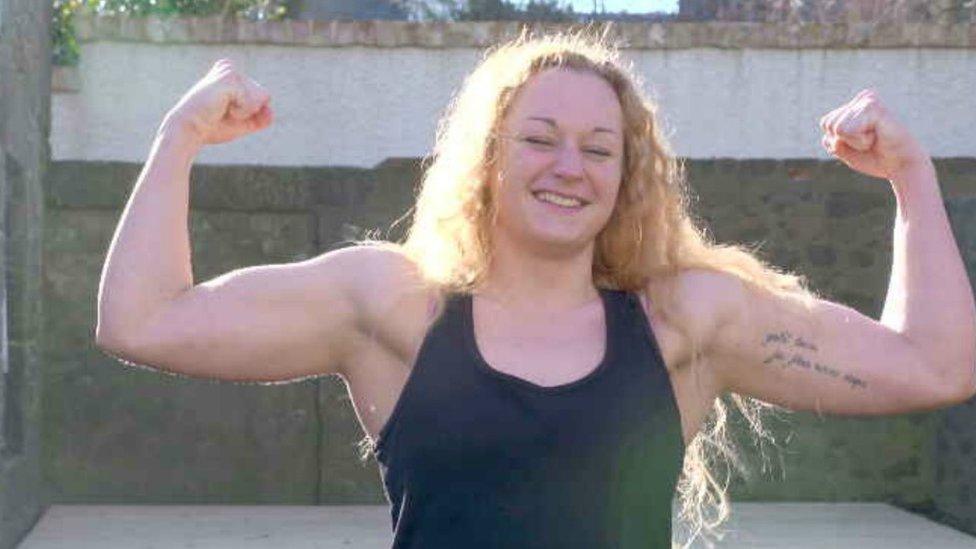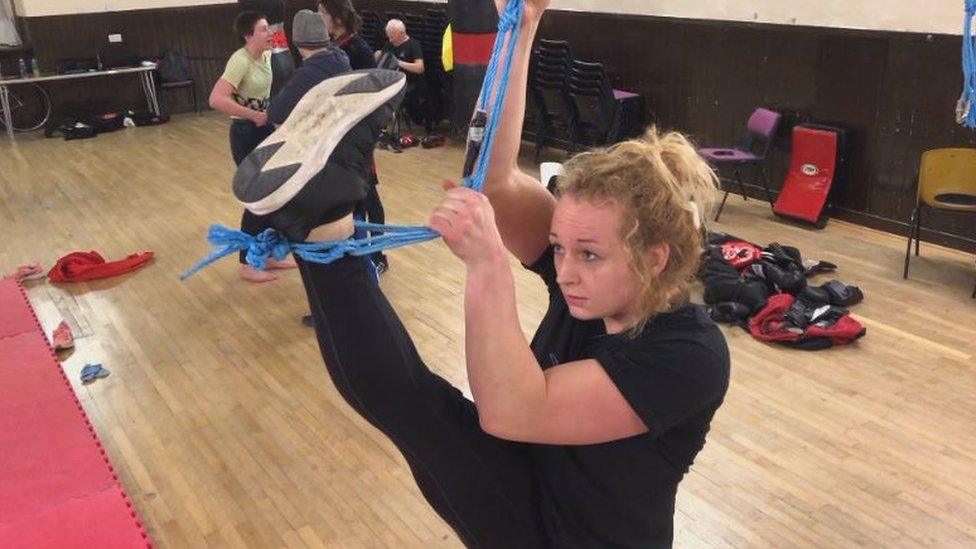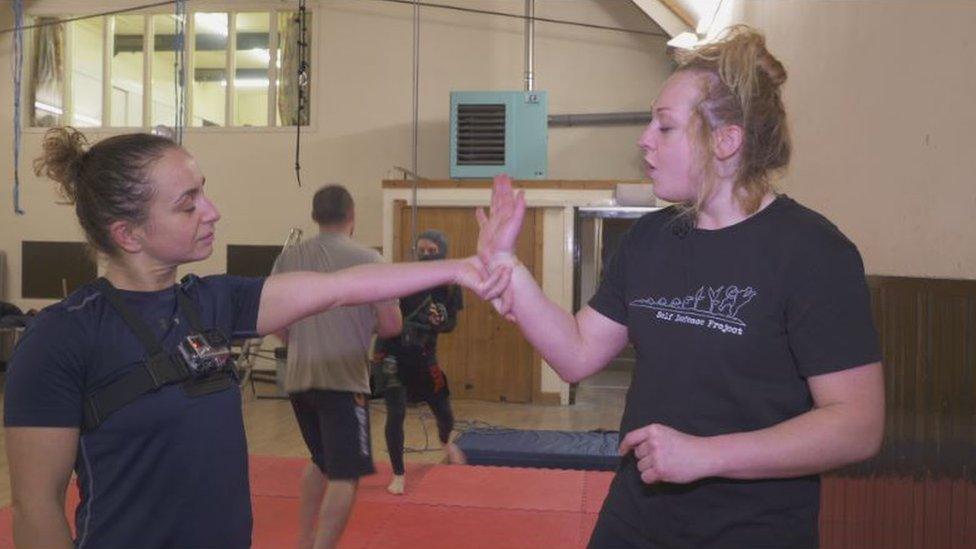The woman fighting back through self-defence
- Published
Arizona is helping women deal with serious trauma, by using self-defence classes.
After experiencing a serious sexual assault, Arizona Brodie is fighting back by teaching women how to better protect themselves both physically and mentally.
"I watch them at the beginning being very timid individuals and coming out of the other side just roaring," she told BBC Scotland's The Nine.
"It's not just about self-defence, it's how you are on a day-to-day basis, in all of life."
Arizona, who chairs Rape Crisis Grampian's board, is the founder of The Self-Defence Project, which delivers workshops and courses to women on the waiting list for counselling.
She says that when someone gets in contact with Rape Crisis it is a "huge milestone" and it is "heartbreaking" that they often have to wait up to six months because of a shortage of resources.
But Arizona, who has a background in martial arts, says the self-defence project makes a difference.

Arizona Brodie runs The Self-Defence Project to help women defend themselves
It was her own experiences that led Arizona to Rape Crisis Grampian as a survivor of sexual abuse.
"It took me a long time to get into contact with them," she says.
"I was trying to understand what had happened. I just hoped something there could help me - and seeing them was the best thing I ever did."
'Doing something good'
This is what motivates her to put the workshops on and teach others, she says.
"I have turned something very difficult into something invaluable, into something that's life-changing for other people," she says.
"My experience caused me a lot of pain in my life.
"Turning it into something that raises other people up is something I never foresaw coming out of that experience. When I go to bed at night I just think - I'm doing something good."
Understanding what her participants are going through is important to Arizona.

Arizona uses her experiences as an international Brazilian Jiu Jitsu competitor to inspire and influence her self-defence classes
"After you've been through a traumatic experience, it can absolutely break you as a person," she says.
"Going through that completely robbed me of my identity.
"I was - I am - a very strong person. That experience completely shattered that image. It makes people an absolute shell of who they were before."
She says the workshops give people back a "feeling of strength and identity".
'More dynamic'
For the past decade, Arizona has been a martial artist.
She specialises in Brazilian Jiu Jitsu, which focuses on grappling and ground-fighting techniques.
Arizona feels this has given her a strong base for the transition into self-defence.
"There's some crossover," she says.
"Martial arts is good for muscle memory and thinking in a more fight-orientated way.
"But a self-defence situation is so much more dynamic.
"There's no rules - there's no limits to how far it can go. There are far greater consequences in a self-defence situation."

One of the beginner techniques Arizona uses is 'The Fabulous Hello' - a twisting of the wrist used to stop someone's grip without causing them pain
Arizona is keen to use what she calls a "holistic" approach to self-defence, incorporating techniques to deal with managing emotions in a difficult situation and looking at techniques used to diffuse tensions.
"From a woman's experience, as someone who is weaker in a self-defence situation, it's not always right to go straight to a physical technique. I want to avoid escalating violence," she says.
She feels her gender also plays a part in the care she is able to provide.
"For people who come it's empowering to see a female instructor, someone who's strong but has also gone through a similar experience to them."
Scores of clients
In the past few months alone, Arizona has seen about 100 women go through her classes and self-defence courses.
Many of the people she has taught have come from Rape Crisis Grampian. She works on policy, campaigns and events, and tries to make a difference to the organisation that she feels has helped her so much.
"I hear some absolutely dreadful stories working here," she says.
"At the same time, it's very motivating in a way - the intensity of that emotion after you hear people's stories lights a fire within me - within everyone here.
"It gives you that power to move forward and be dedicated to what you're doing.
"But that experience doesn't define you. It'll always be part of who you are, you can't undo that."
'Million times stronger'
She added: "It did take me a long time for me to get to the place I am in now. Now I am strong, I feel very confident. I feel very capable, and together, and stable, and good.
"Going through something like that is unbelievably difficult, but it can also be the making of you. It sounds cliché and absurd, but that's my experience.
"I've come out of the other side knowing I'm a million times stronger than I've ever, ever been before."